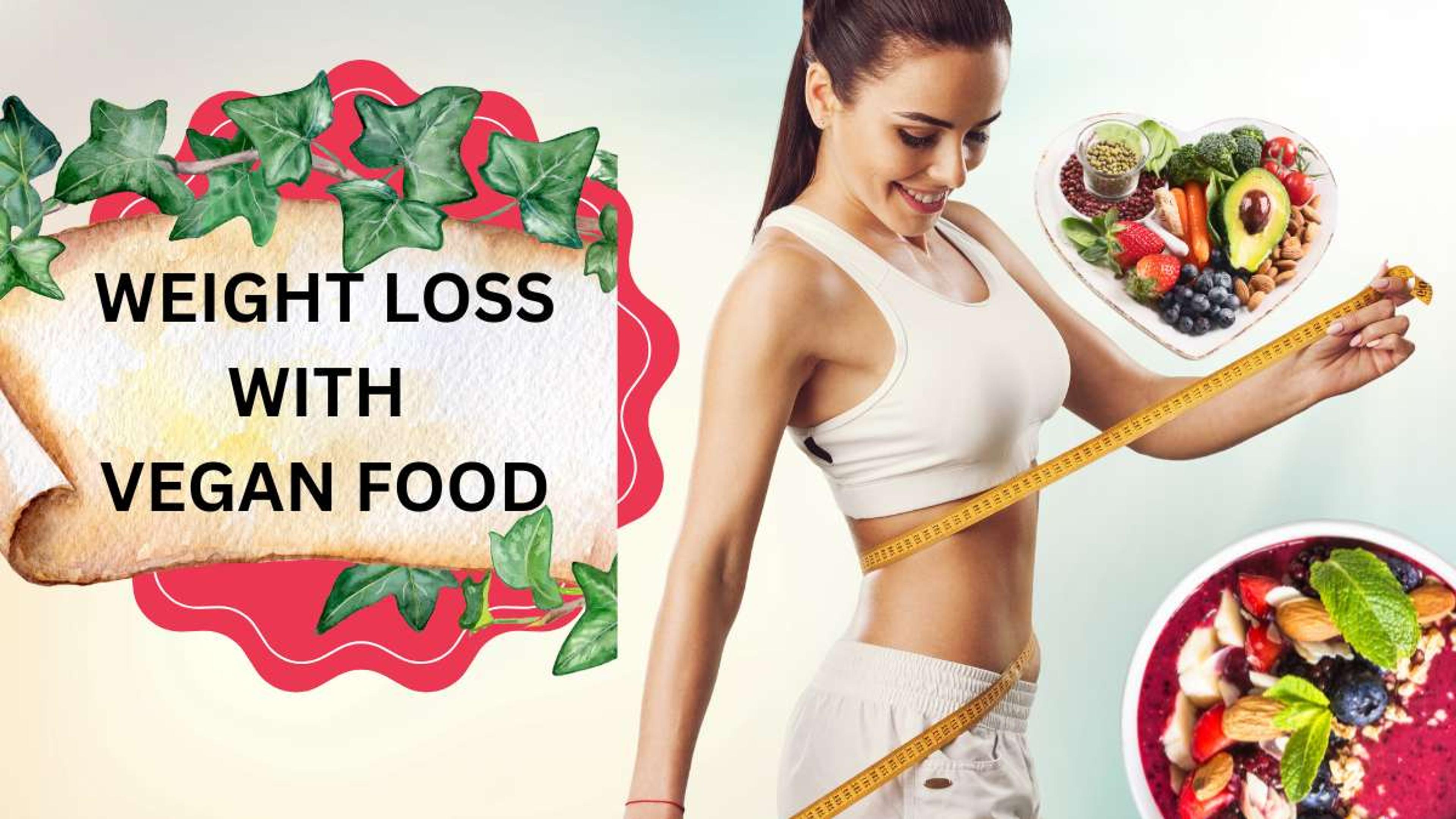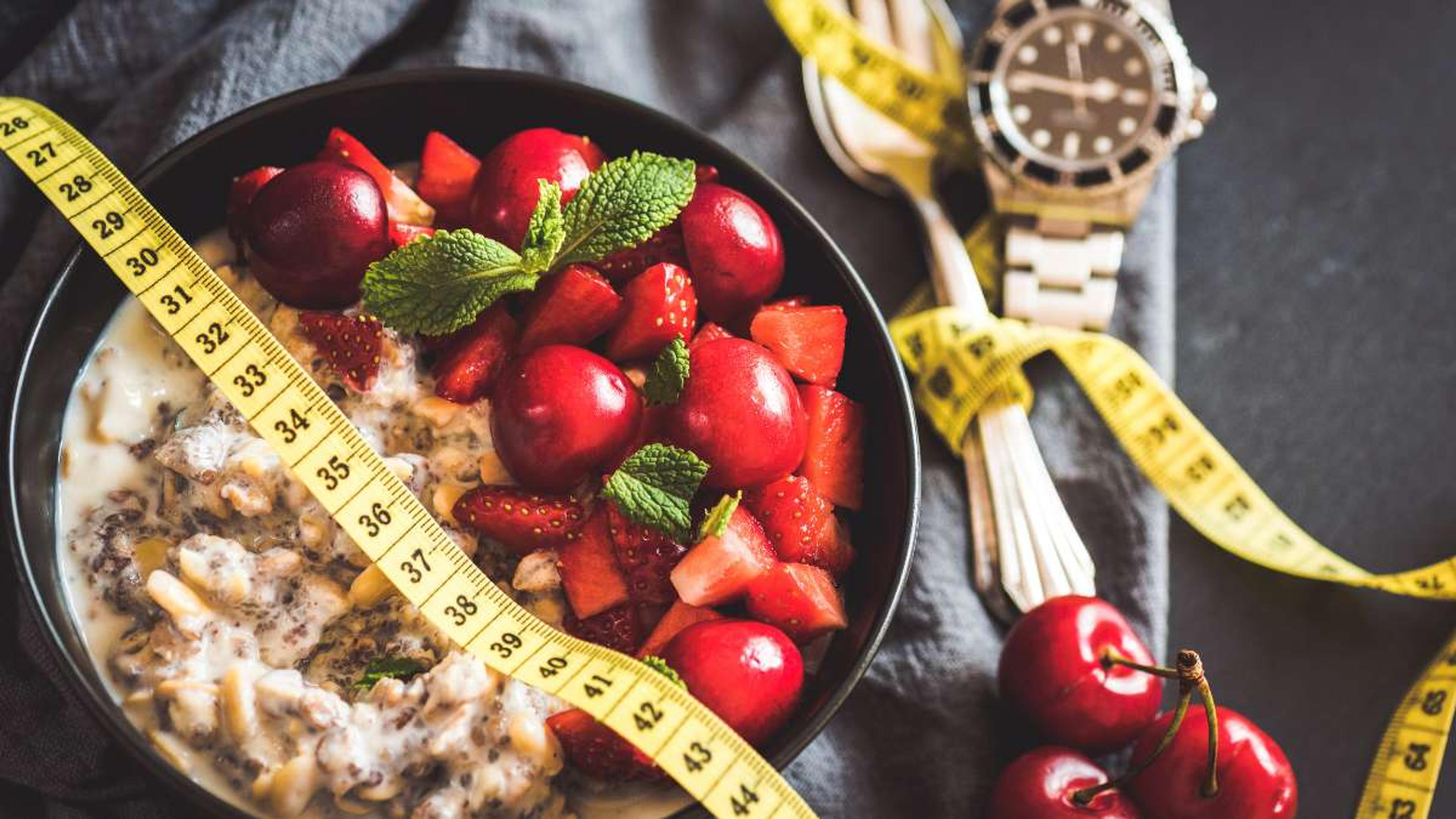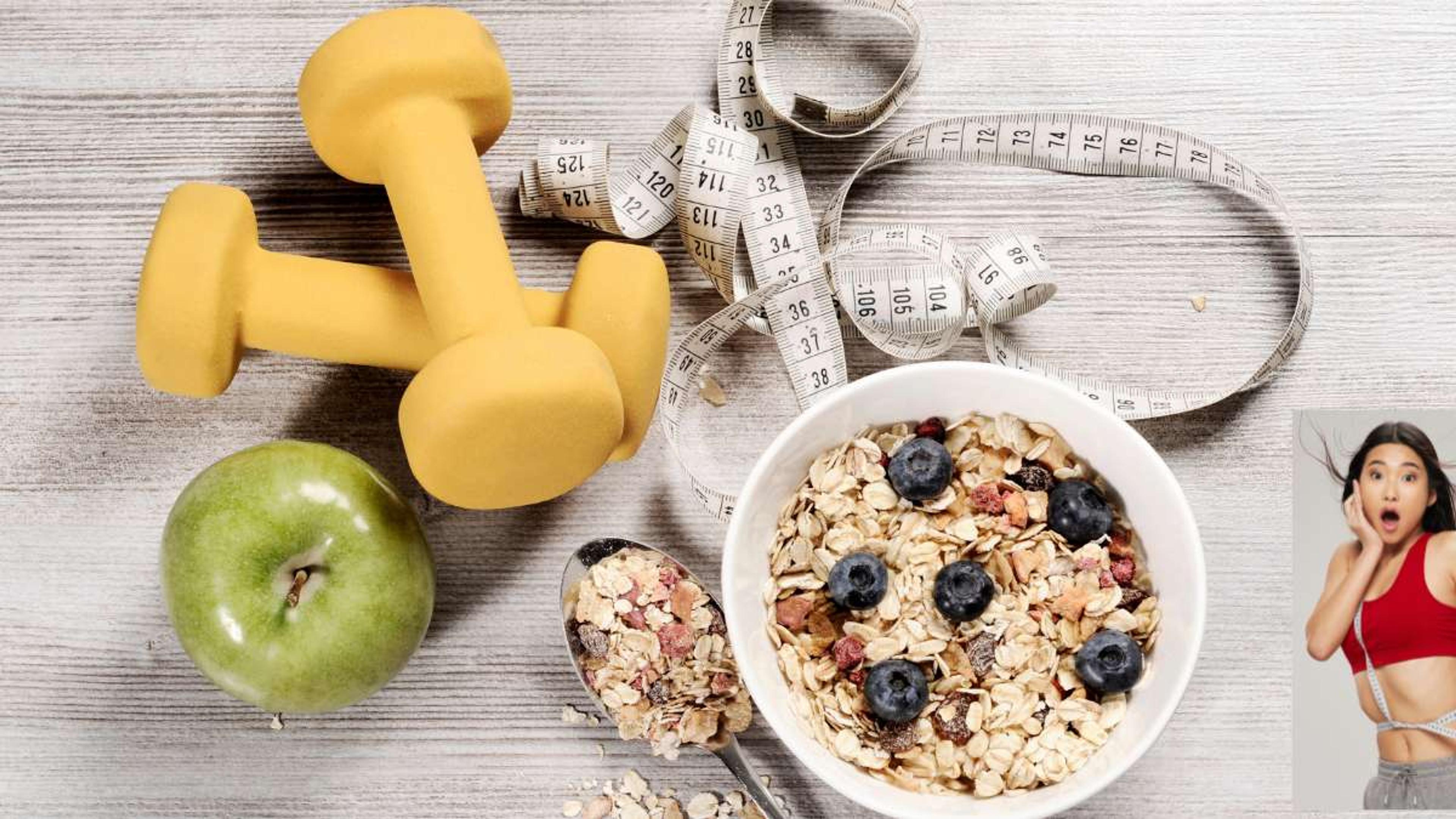The Best Vegan Foods for Weight Loss and a Healthy Lifestyle

- Key Takeaways
- Vegan Foods That Promote Weight Loss
- Vegan Foods to Avoid for Weight Loss
- Benefits of Vegan Foods for Weight Loss
- Tips for Effective Weight Loss on a Vegan Diet
- Conclusion
- FAQs
Are you striving to shed some pounds while adhering to a vegan diet? Research suggests that opting for plant-based meals can promote substantial weight loss. In this blog post, we'll explore the variety of nutrient-rich vegan foods that can help you achieve your weight loss goals.
Stick around if you're ready to embark on a healthier and more sustainable lifestyle journey!
Key Takeaways
- Leafy greens, cruciferous vegetables, beans and legumes are all nutrient-rich vegan foods that can promote weight loss. They are low in calories and high in fiber, making you feel full without gaining weight.
- Vegan soups, whole grains, nuts and seeds provide essential nutrients while supporting weight loss efforts. They help you stay satisfied for longer periods of time and stabilize blood sugar levels.
- Avocados, spices/hot peppers, fruits, and plant-based proteins like lentils and chickpeas are also great options for a vegan diet focused on weight loss.
- To achieve successful weight loss on a vegan diet, it is important to avoid processed vegan foods, sugary desserts, over consumption of high-carb and high-fat plant-based food and oils as they can hinder progress towards achieving weight loss goals.
Vegan Foods That Promote Weight Loss

Leafy Greens
Leafy greens pack a big punch for weight loss. Foods like kale, collards, and spinach have low calories. This means you can eat more of them without gaining weight. Also, they make your meals larger and filling.
That stops hunger fast! Health experts say that leafy greens are good for the heart too. They lower cholesterol levels and help keep blood sugar in check. So not only do they help with weight loss, but they also boost your health overall! Making leafy greens a part of your daily diet is a smart choice to shed those extra pounds faster.
Cruciferous Vegetables
Cruciferous vegetables are great for weight loss. They come packed with vitamins, such as vitamin C and vitamin K. You can eat a lot of them without piling on calories. That's because they have fiber which fills you up.
Think about adding broccoli, cauliflower, or kale to your meals. These veggies can help lower inflammation and keep your heart healthy too! You should try cooking Brussels sprouts or cabbage next time you make dinner.
Eating these kinds of foods will help you stay fit on a vegan diet.
Beans and Legumes
Beans and legumes are great for weight loss. They are low in fat and high in fiber. This makes you feel full without eating a lot. Foods like black beans, lentils, and peas are all part of this group.
Eating more of these can boost your weight loss by six points. These foods also give you iron, zinc and other good stuff your body needs. Plus, they have less bad fat than meat does which is good news for your heart too!
Soups
Vegan soups are a great choice for weight loss because they are both nutritious and low in calories. Lentil soup, in particular, is a popular option for those looking to shed pounds.
It's not considered fattening and can be a healthy addition to your weight loss journey. Many people search for lentil soup recipes and find success with the lentil soup diet. These soups often include flavorful spices like turmeric, ginger, and cumin that complement the lentils well.
So if you're looking to lose weight on a vegan diet, don't forget about the power of soups!
Whole Grains
Whole grains are an essential part of a vegan diet for weight loss. They are packed with nutrients and fiber, which can help you feel full and satisfied. Whole grains such as quinoa, oats, brown rice, millet, and farro are excellent choices for incorporating into your vegan meals.
Not only do they provide energy to fuel your body, but they also promote digestive health and lower cholesterol levels. Including whole grains in your diet can support your weight loss efforts by helping you stay satisfied for longer periods and avoiding overeating.
Nuts and Seeds
Nuts and seeds are an excellent addition to a vegan diet, especially for those looking to lose weight. These little powerhouses are packed with healthy fats, fiber, and protein, making them incredibly satisfying and nutrient-dense.
Despite their relatively high calorie content, numerous studies have found that consuming nuts and seeds is not associated with weight gain. In fact, incorporating nuts and seeds into your diet can actually support weight loss efforts.
Not only do nuts and seeds provide essential nutrients like omega-3 fatty acids and vitamin E, but they also help you feel fuller for longer periods of time. This means that you're less likely to reach for unhealthy snacks or overeat at meals.
Additionally, the combination of healthy fats, fiber, and protein in nuts and seeds helps stabilize blood sugar levels and keeps cravings at bay.
Including a variety of nuts such as almonds, walnuts, or peanuts along with nutritious seeds like chia or flaxseeds can bring exciting flavors to your salads or smoothies while keeping you satisfied throughout the day.
Avocados
Avocados are a nutritious addition to a vegan diet for weight loss. They contain heart-healthy monounsaturated fats, which can help with weight loss by keeping you full for longer.
Avocados are also high in fiber, which aids digestion and promotes feelings of fullness. Unlike many other fruits, avocados have more healthy fats than carbohydrates, making them a filling and satisfying food choice.
In fact, studies suggest that avocado consumption may even prevent weight gain. So go ahead and enjoy some sliced avocado on your salads or spread it on whole grain toast for a delicious and nutritious way to support your weight loss efforts.
Spices and Hot Peppers
Spices and hot peppers are not only flavorful additions to a vegan diet but can also aid in weight loss efforts. Hot peppers contain capsaicin, a compound that has been shown to increase metabolism and reduce appetite.
By incorporating spices like chili powder or cayenne pepper into your meals, you can enjoy the added benefit of boosting fat burning and promoting a feeling of fullness. Additionally, spicy foods have been found to have positive effects on gut health and digestion.
So, don't be afraid to add a little heat to your vegan dishes for both taste and weight loss benefits!
Fruits
Fruits are an essential part of a vegan diet for weight loss. They are low in calories and packed with vitamins, minerals, and fiber that can help you feel full and satisfied. Some fruits commonly consumed in a vegan diet include berries, apples, pears, bananas, avocados, tomatoes, and leafy green vegetables.
These fruits provide nutrients while keeping the calorie intake in check. So next time you're looking for a healthy snack or dessert option on your vegan weight loss journey, reach for some delicious fruits!
Plant-based proteins are a great option for individuals following a vegan or vegetarian diet. These proteins, such as seitan, chickpeas, lentils, and nutritional yeast, provide essential nutrients while being free from animal products.
They are also lower in fat compared to animal-based proteins like meat and dairy. Incorporating plant-based proteins into your meals can help support weight loss efforts by providing satiety and helping to maintain muscle mass.
Plus, they have the added benefit of being rich in fiber and antioxidants which can promote overall health. So if you're looking to lose weight on a vegan or vegetarian diet, be sure to include plenty of plant-based protein options in your meals!
Vegan Foods to Avoid for Weight Loss
Processed vegan foods, sugary vegan desserts, and high-fat plant-based oils should be avoided for weight loss. These foods are often high in calories and can hinder progress towards achieving weight loss goals.
To learn more about which specific foods to avoid and why, keep reading!

Processed vegan foods
Processed vegan foods are not recommended for weight loss because they often contain unhealthy ingredients and additives. These processed options can contribute to weight gain or hinder your efforts to lose weight.
It's important to choose minimally processed or whole plant-based foods instead, as they provide more nutrients and are generally healthier. Ultra-processed vegan foods may have negative health effects compared to whole, unprocessed plant-based foods.
To achieve successful weight loss on a vegan diet, it is best to avoid processed vegan foods altogether.
Sugary vegan desserts
Vegan desserts can still be filled with lots of sugar, calories, and fat. Even though they don't have animal products, things like vegan ice cream, cookies, cakes, and candy can be just as unhealthy as non-vegan versions.
So if you're trying to lose weight, it's important to watch out for these sugary treats. They might not help your weight loss goals because they can have a lot of added sugars and fats.
It's good to remember that even though something is vegan doesn't mean it's automatically healthy or low in sugar.
High-fat plant-based oils
Diets that include high-fat plant-based oils, such as sunflower oil, safflower oil, corn oil, vegetable oil, and canola oil, may make it harder for vegans to lose weight. These oils are discouraged in a vegan diet because they contain a lot of omega-6 fatty acids.
Too much of these fatty acids can hinder weight loss efforts. Instead of using these oils, it's better for vegans to consume higher-fat plant foods like nuts and seeds. They provide healthy fats without the negative effects on weight loss.
Benefits of Vegan Foods for Weight Loss
Vegan foods offer numerous benefits for weight loss. They are nutrient-dense and low in calories, making them an excellent choice for those looking to shed pounds. Additionally, the high fiber content helps with weight management by promoting feelings of fullness and controlling hunger and cravings.
By incorporating more plant-based options into your diet, you can support sustainable weight loss while improving your overall health.

Nutrient-dense and low-calorie options
Vegan foods that are nutrient-dense and low in calories can be great choices for weight loss. These options provide your body with essential nutrients while keeping your calorie intake under control.
For example, leafy greens like spinach and kale are packed with vitamins and minerals but contain very few calories. Nuts and seeds also fall into this category - they may have a higher calorie content, but they offer plenty of healthy fats, fiber, and essential nutrients.
By choosing these nutrient-dense, low-calorie vegan foods, you can nourish your body while supporting your weight loss goals at the same time.
High fiber content aids in weight management
A high fiber content in a vegan diet can help with weight management. Fiber is found in plant-based foods like fruits, vegetables, whole grains, and legumes. It adds bulk to your meals without adding extra calories.
High-fiber foods also keep you feeling full for longer periods of time, which can help control hunger and prevent overeating. Additionally, fiber helps regulate digestion and promotes regular bowel movements.
This can be beneficial for maintaining a healthy weight as it supports the removal of waste from the body efficiently. Incorporating more high-fiber foods into your vegan diet can aid in weight loss efforts and improve overall health.
Controls hunger and cravings
Following a vegan diet can help to control hunger and cravings, making it easier to lose weight. Plant-based foods are typically high in fiber, which helps to keep you feeling full for longer periods of time.
This means that you're less likely to snack on unhealthy foods or overeat throughout the day. Additionally, plant-based foods are often low in calorie density, meaning that they provide fewer calories per gram compared to animal products.
This allows you to eat larger portions without consuming excessive calories. By including plenty of fruits, vegetables, whole grains, beans, legumes, nuts, and seeds in your meals and snacks, you can satisfy your hunger while still maintaining a calorie deficit for weight loss.
A vegan diet rich in nutrient-dense plant foods can also help to reduce cravings for unhealthy snacks and sweets. These types of food tend to be high in added sugars and unhealthy fats which can contribute to weight gain.
Instead of reaching for processed snacks or desserts which may spike blood sugar levels and leave you craving more sugary treats later on; opt for natural sources of sweetness like fresh fruits or dried fruit as these provide beneficial nutrients alongside their natural sugars rather than empty calories from added sugars.
Supports sustainable weight loss
A vegan diet can support sustainable weight loss. By focusing on nutrient-dense foods that are low in calories, such as fruits, vegetables, whole grains, and plant-based proteins like beans and legumes, you can create a calorie deficit and shed pounds over time.
The high fiber content of these foods helps you feel fuller for longer and reduces cravings. Additionally, studies have shown that individuals following a vegan diet tend to consume fewer calories overall compared to those who eat animal products.
This can lead to more significant weight loss and promote long-term success in maintaining a healthy weight.
Improves overall health
A vegan diet can improve your overall health in several ways. First, it reduces the risk of heart disease because it is low in saturated fat and cholesterol. Second, it can protect against certain types of cancer due to the high intake of fruits and vegetables that are rich in antioxidants.
Third, a vegan diet may lower the risk of developing type 2 diabetes because it helps maintain a healthier weight and improves insulin sensitivity. Lastly, by eliminating animal products from your diet, you are also reducing your exposure to antibiotics and hormones commonly found in animal foods, which can have negative effects on overall health.
Tips for Effective Weight Loss on a Vegan Diet

Portion control
Controlling portion sizes is an important aspect of weight loss, regardless of whether you're following a vegan diet or any other type of eating plan. By being mindful of the amount of food you consume, you can manage your calorie intake and promote weight management.
Pay attention to serving sizes by using measuring cups or a food scale to ensure that you are not eating more than necessary. Another helpful strategy is to use smaller plates and bowls to trick your brain into feeling satisfied with less food.
Remember, even if the foods are healthy, consuming too much can still lead to weight gain. So be conscious of portion control as part of your overall weight loss efforts.
Plan and prepare meals ahead of time
Planning and preparing meals ahead of time is an effective strategy for weight loss on a vegan diet. Here are some tips:
- Dedicate one to two hours each week for meal prep.
- Choose recipes and create a shopping list before you go grocery shopping.
- Cook in bulk and portion out meals for the week.
- Use meal prep containers to store your meals in the fridge or freezer.
- Consider batch cooking staples like grains, beans, and sauces that can be used in various dishes throughout the week.
- Pre-cut fruits and vegetables for easy snacking or adding to salads and stir-fries.
- Have healthy snacks readily available, such as pre-portioned nuts or cut-up veggies with hummus.
- Utilize kitchen gadgets like slow cookers, pressure cookers, or air fryers to save time when cooking.
Tips for dining out
When dining out, it's important to make healthy choices. Here are some tips:
- Look for vegan-friendly restaurants or options on the menu.
- Start with a salad or vegetable-based appetizers to fill up on nutritious foods.
- Choose dishes that are grilled, roasted, or steamed instead of fried.
- Ask for dressings and sauces on the side to control the amount you use.
- Opt for dishes that include whole grains, like quinoa or brown rice.
- Be mindful of portion sizes and try not to overeat.
- Ask for modifications, such as substituting animal-based ingredients with plant-based alternatives.
- Avoid sugary drinks and opt for water or unsweetened beverages instead.
- Don't be afraid to ask questions about how the food is prepared and what ingredients are used.
- Enjoy your meal and focus on the social aspect of dining out rather than just the food.
Regular exercise
Regular exercise is an important component of weight loss on a vegan diet. When combined with a plant-based eating plan, regular physical activity can help increase calorie burn and improve overall fitness levels.
By engaging in activities such as brisk walking, jogging, cycling, or strength training exercises, individuals can enhance their weight loss efforts and boost their metabolism. Additionally, regular exercise has been shown to have numerous benefits for both physical and mental health.
So make sure to incorporate regular exercise into your vegan weight loss journey for maximum results!
Adequate hydration
Drinking enough water is crucial for successful weight loss on a vegan diet. Water should be your main source of hydration when trying to lose weight. It can help support your efforts by keeping you feeling full and satisfied, preventing overeating.
Staying properly hydrated is essential not only for weight loss but also for overall health. It helps with digestion, metabolism, and energy levels. So make sure to drink enough water throughout the day to optimize your weight loss results on a vegan diet.
Cooking and preparation tips
- Use cooking methods like steaming, baking, or grilling instead of deep frying to reduce added fats and calories.
- Experiment with different herbs and spices to add flavor to your dishes without relying on excessive oils or salt.
- Try using vegetable broth or water instead of oil when sautéing vegetables.
- Replace creamy dressings and sauces with healthier alternatives like hummus, salsa, or balsamic vinegar for added taste without the extra calories.
- Opt for whole grain versions of pasta, bread, and rice to increase fiber content and keep you feeling fuller for longer.
- Incorporate meal prepping into your routine by batch cooking healthy vegan meals in advance so you always have a nutritious option ready to go.
- Make sure to read recipes carefully and understand portion sizes to help control calorie intake.
- Get creative with plant-based proteins like tofu, tempeh, and seitan by marinating them in flavorful sauces before cooking to enhance taste.
Conclusion
In conclusion, incorporating vegan foods into your diet can be a beneficial way to support weight loss. These nutrient-dense and low-calorie options, such as leafy greens, beans and legumes, fruits, and whole grains, provide essential vitamins and minerals while keeping you full.
By avoiding processed vegan foods and sugary desserts, you can maintain a healthy calorie intake for sustainable weight loss. Remember to pair your plant-based meals with regular exercise and portion control for effective results on your weight loss journey.
FAQs
1. Can vegan foods help with weight loss?
Yes, consuming a plant-based vegan diet can support weight loss as it is typically lower in calories and high in fiber, which helps you feel fuller for longer.
2. What are some examples of vegan foods that promote weight loss?
Examples of vegan foods that promote weight loss include fruits, vegetables, whole grains, legumes, nuts, and seeds. These foods are nutrient-dense and low in saturated fats.
3. Do I need to count calories when following a vegan diet for weight loss?
While counting calories can be helpful for some individuals, following a balanced vegan diet that includes a variety of whole foods usually leads to natural calorie control without the need for strict counting.
4. Are there any potential challenges or considerations when adopting a vegan diet for weight loss?
Some potential challenges with adopting a vegan diet for weight management include ensuring adequate protein intake and maintaining proper nutrition by including sources like tofu, tempeh, lentils or beans along with fortified plant-based milks or supplements containing necessary nutrients such as Vitamin B12.

